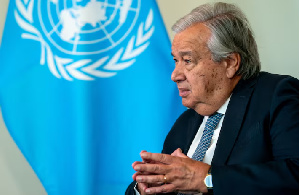Business News of Thursday, 21 October 2021
Source: etvghana.com
Government working with oil pricing sector to reduce fuel prices – Kwame Apenteng
Communication Team Member of the New Patriotic Party (NPP), Nana Kwame Apenteng, has disclosed that the government is working judiciously “with those who matter in the oil pricing sector to reduce fuel prices in the coming weeks.”
He says the close door meetings have seen the participation of both the Transport and Energy Ministry in ensuring fuel prices are lower. “We are now in the middle of the week and from now till next week, there will be good news. The government is putting in place measures to reduce the prices of fuel.”
In his opinion, the President Akufo-Addo-led government is a listening one and will not sit idly for the prices of fuel to be cutthroat, and make it difficult for its people to survive.
In a panel discussion with Don Kwabena Prah on Happy98.9FM’s Epa Hoa Daben political talk show, Nana Kwame Apenteng also advised private individuals to purchase vehicles with low fuel consumption as the government works to reduce fuel prices.
The politician also encouraged commercial transport users not to panic about the supposed increment in lorry fares. “If these meetings go well and the prices of fuel go down, then there won’t be any reason for the GPRTU to increase transport fares.”
Projections from the National Petroleum Authority (NPA) suggests that fuel prices in the country may surge close to GH¢ 6.86 per litre at the pumps if all other factors influencing pricing do not change.
According to Abass Ibrahim Tasunti, the Head of Pricing at the NPA, the second pricing window for October puts the price of petrol at GH¢6.84 per litre while diesel will likely sell at GH¢6.86 per litre starting October 16, 2021, baring any changes on the world oil market.
These projections do not take into account the margins of oil marketing companies and that of the bulk distribution companies, which may cause the projected amounts to go higher while statutory taxes and margins remain the same.
Entertainment










